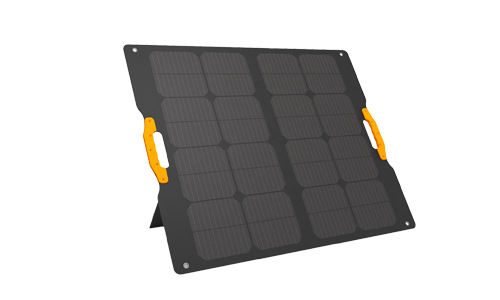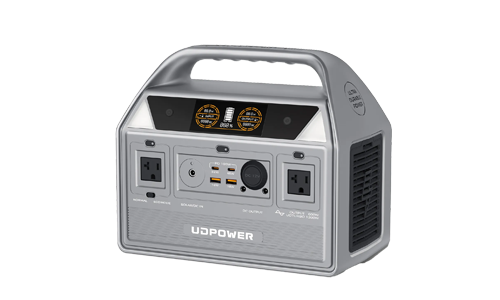Best Budget Portable Power Station (2025): How to Choose + UDPOWER Picks
ZacharyWilliamNo hype, just the specs and math you need to buy confidently at the lowest price that still meets your real-world loads.

1) How to choose on a budget
Battery & life
Prefer LiFePO4 chemistry for longevity and safety. Look for cycle life in the thousands and a solid battery management system (BMS).
Power, not just capacity
Match your continuous AC watts to your biggest appliance (e.g., mini-fridge ~70–100W, CPAP 30–60W). Surge/“boost” helps with startup but cannot sustain high loads.
Ports & charging
USB-C PD for fast laptop/phone charging, at least one AC outlet, and solar + wall + car input. Faster AC or dual-input cuts downtime.
“Best budget” ≠ “cheapest possible.” It’s the lowest price that still hits your minimum runtime and wattage with a trustworthy safety profile.
2) Quick runtime math (so you don’t overbuy)
Rule of thumb: Estimated hours ≈ (Battery Wh × 0.85) ÷ Device Watts
- 256 Wh unit → phone + lights (15 W): ≈14.5 hours
- 596 Wh unit → CPAP (40 W) + fan (10 W): ≈10.1 hours
- 1,190 Wh unit → mini-fridge (80 W average): ≈12.6 hours
The 0.85 factor accounts for inverter/charging losses. Actual runtime varies with temperature, speed settings, and duty cycles.
3) Price tiers: what you get under $200 / $300 / $400
Entry capacity (~200–260 Wh) for phones, cameras, routers, LED lights, small fans. Ultra-portable, fastest payback if you just need essentials.
~500–600 Wh with ~600 W inverter is a sweet spot for CPAP, mini-fridges, multiple devices, and short outages.
~1 kWh class options give serious headroom for longer blackouts, RV weekends, and running more outlets at once.
Pricing fluctuates with promos; check current listings before you buy.
4) UDPOWER picks with verified specs
UDPOWER C400 — Hand-Sized Value Leader

For ultralight trips and basic backup on the lowest budget.
- Battery: 256 Wh LiFePO4
- AC Output: 400 W continuous; up to 800 W in “UD-TURBO” mode
- Fast charge: ~1.5 h to 80% (high-speed AC)
- Weight: ~6.9 lb
- Use-case fit: phones, laptops, cameras, LED lights, drones, routers; short campsite stays
UDPOWER C600 — The Budget “Sweet-Spot”

Twice the capacity of C400 with a 600 W inverter at a still-affordable price.
- Battery: 596 Wh LiFePO4
- AC Output: 600 W continuous, 1,200 W peak
- Ports: 2× AC, USB-C PD 65 W + 35 W, 2× USB-A 18 W, 12 V car outlet
- Weight: ~12.3 lb
- Use-case fit: CPAP, mini-fridges, multiple devices during outages, weekenders who hate recharging often
UDPOWER S1200 — Big-Capacity, Still Budget-Friendly

Steps into ~1.2 kWh territory for longer outages and RVs without “premium” pricing.
- Battery: ~1,190 Wh LiFePO4
- AC Output: 1,200 W continuous, boost up to 1,800 W
- Outlets: up to 5 AC + dual 100 W USB-C PD + USB-A + DC + wireless charging (up to 15 total outputs)
- UPS: switchover < 0.01 s (for sensitive loads)
- Use-case fit: home backup, RV/van weekends, longer boondocking, running more devices at once
5) Side-by-side comparison (at a glance)
| Model | Battery (Wh) | AC Output (W) | Peak / Boost | Weight | Best for |
|---|---|---|---|---|---|
| C400 | 256 | 400 | 800 | ~6.9 lb | Essentials, ultralight kits |
| C600 | 596 | 600 | 1,200 | ~12.3 lb | CPAP, mini-fridges, short outages |
| S1200 | ≈1,190 | 1,200 | 1,800 | ~26 lb (approx.) | Home/RV backup, multi-device rigs |
Weights and peak figures are manufacturer-stated. Always leave 20–30% headroom between your device wattage and the inverter’s continuous rating.
6) Which one should you buy?
C400 → Lowest total cost
If you mainly need to keep comms and light going (phones, Wi-Fi, headlamps, camera batteries) and value a tiny, fast-charging unit, start here.
C600 → Best value per feature
The “do-most-things” pick: CPAP + fan overnight, a mini-fridge, or several devices in an outage—without constant recharges.
S1200 → Budget big-capacity
Choose this when you want meaningful blackout coverage or RV weekends with multiple AC outlets and ultra-fast UPS switchover.
7) Pro tips to stretch a budget station
- Right-size first: compute your peak and average watts before picking a model.
- Use USB-C PD when possible: it skips inverter losses and adds hours of runtime.
- Charge smart: combine solar + wall (where supported) to shorten downtime; avoid deep discharges for longevity.
- Ventilation matters: heat kills battery life—keep grills clear.
- Don’t rely on “boost” for long: surge is for short startup only.
8) FAQ for budget buyers
Is LiFePO4 really worth it at budget levels?
Yes—thousands of cycles means your cost per cycle drops dramatically versus NMC-based budget units. It’s also more thermally stable.
Can a budget unit run a fridge?
A mini-fridge, yes—start with ~600 W inverter and ~500–600 Wh battery (C600 class). Full-size fridges typically need higher capacity and careful surge management.
Should I buy solar right away?
If you camp or face frequent outages, a 100–200 W folding panel is a force multiplier. Otherwise, start with the station and add panels later.


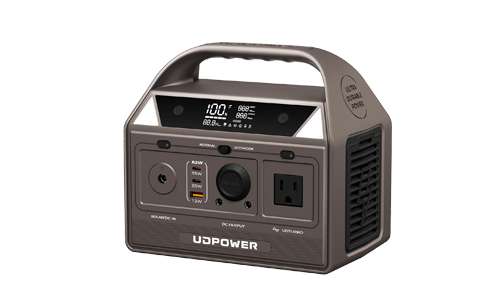
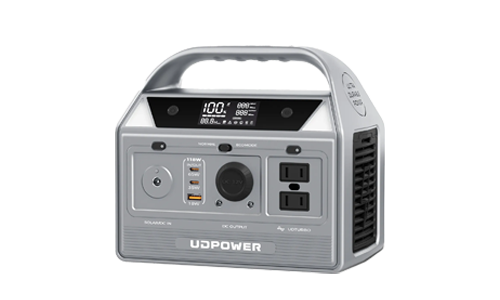
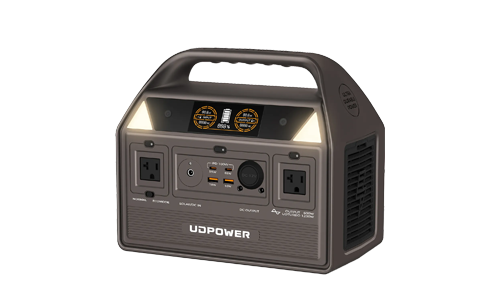
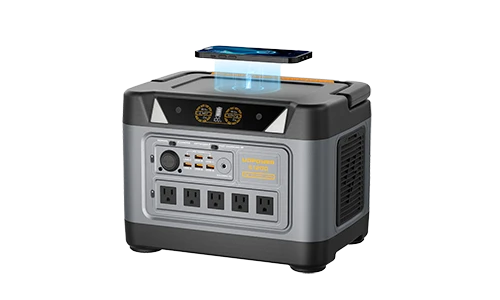
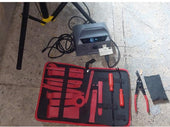
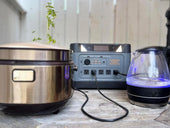
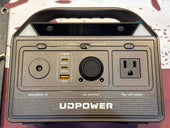
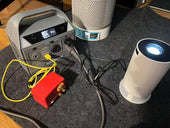
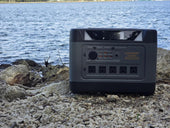
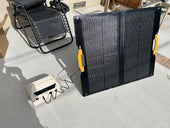














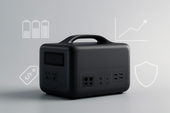







![How to Live In The Woods [Complete Guide]](http://udpwr.com/cdn/shop/articles/Off-Grid_Cabin_Option_f6c94fe7-1ae7-4c3a-baf5-ed9fe684c832.png?v=1763523215&width=170)





